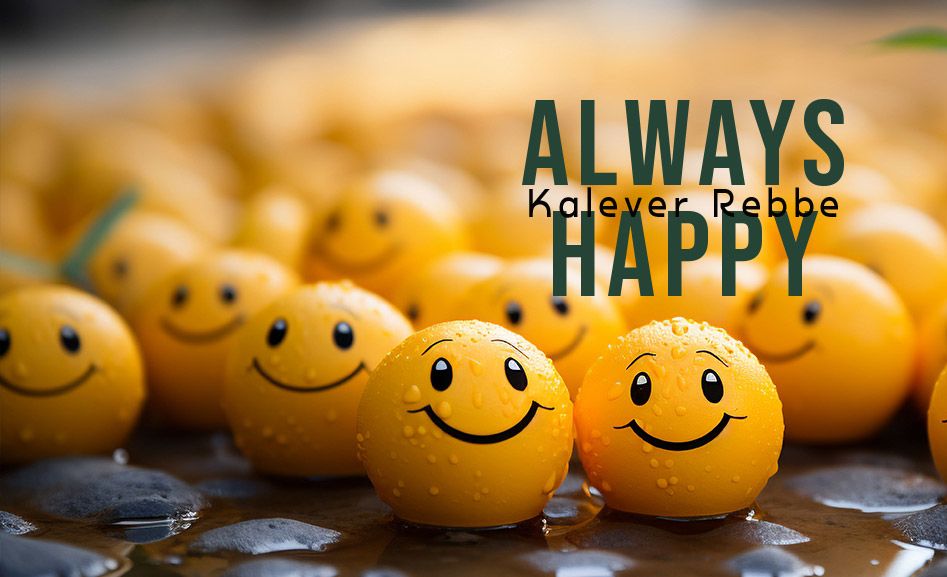
The Best Partnership
Our senior partner demands that we take life seriously, assume responsibility for ourselves and do what we can in performing our designated task on earth...

Translated by Rabbi Lazer Brody
The Midrash tells us about a non-Jew who asked Rabbi Akiva, "If G-d wanted you to be circumcised, then why didn't He create you that way?" The Torah tells us, "All His work which G-d created to do" (Genesis 2:2). Why "to do"? Isn't that redundant? Wouldn't it have been sufficient if the Torah merely said "All His work which G-d created"?
Hashem grants us free choice. He gives us the opportunity for us to obtain great rewards performing His commandments. Sure, He could have created loaves of bread that grow on trees, but in letting us grow the wheat ourselves, grind the flour and bake the bread, He gives us the opportunity to do many mitzvoth. In this manner, Hashem makes us partners in creation. When we do his mitzvoth, we virtually give vitality to all of creation. For that reason, the Torah stresses, "All His work which G-d created to do", the tasks that Hashem leaves for us to do, such as circumcising a male child at eight days of age, which in effect makes us partners  in creation. Once we do our part, Hashem does his part. The old adage says, "Help yourself and Hashem will help you."
in creation. Once we do our part, Hashem does his part. The old adage says, "Help yourself and Hashem will help you."
A person must know that unless he makes a serious effort to better himself and his character, his main task in life, little else will help him. Most importantly, a person must know that he is not alone, that Hashem – his best partner – is right there with him to help. The Gemara teaches us that there are three partners in creating a human being – G-d, the mother and the father (tractate Nidda 31a). Yet as we grow, we assume an increasing partnership with Hashem by perfecting His creation. Like in every good business, each partner must do his job to the best of his ability.
Hashem, our senior partner, demands that we take life seriously, assume responsibility for ourselves and do what we can in performing our designated task on earth – getting to know Hashem and perfecting ourselves. Learning Torah and performing its mitzvoth are the means whereby we accomplish this task. The Torah and the mitzvoth are the light and the vessels which enable us to rid ourselves of the evil inclination and its inane and disastrous influences. Inasmuch, anyone who cares about himself will seek to learn Torah, to observe the mitzvoth and to pray for Divine guidance and assistance, especially in overcoming lust, bad habits and temptation. Most important, one must pray that Hashem guide him in the path of holiness, humility and emuna.
Anyone who thinks that he or she is fulfilling life's obligations by perfunctorily performing the mitzvoth while making no effort to overcome animalistic urges and tendencies is sorely mistaken. A person may look observant and mechanically perform mitzvoth, but without refined character traits, he could still be a wild animal. The Torah warns us that a person might even have a rabbi like Moses and see miracles with his own eyes, but without concerted effort on his own part in refining character and overcoming bodily urges, he might still end up worshiping a golden calf.
Our sages tell us that a human being must always fear G-d, both behind closed doors and in public. In telling us so, they are saying that fear we must be a human being before we can have fear of G-d. A human being is one who is kind and compassionate, a humble individual with emuna. This is a person who is doing his part in his partnership with Hashem. Hashem considers such a person as his full partner in creation; He therefore says, "Let us make man" – you and I together. Hashem seemingly tells us, "You do your job and I'll do mine." This is life's best partnership.
Rebbe Nachman of Breslev knew that the only way to maintain a good partnership with Hashem is to speak to Him every day. He therefore instructs us to devote an hour a day to personal prayer, when we share our innermost and most intimate thoughts and deliberations with Hashem.
Thank G-d, for over thirty years since I began to observe the Torah's commandments, I've adopted the practice of daily personal prayer. From extensive personal experience, I can safely say that personal prayer is the key that unlocks self-improvement. One who tenaciously seeks Hashem's assistance in character betterment or in overcoming a bad habit will ultimately taste the sweet fruits of his labors. The main thing is not to be impatient or impetuous, and not to expect instant results.
An important principle in personal prayer is to concentrate on one goal at a time. One who tries to accomplish too much at once loses focus and effectiveness. It's therefore preferable to pray for one area of self-improvement until one sees tangible results and the improved behavior becomes second nature. You can certainly depend on your holy Partner in Heaven for help.












Tell us what you think!
Thank you for your comment!
It will be published after approval by the Editor.